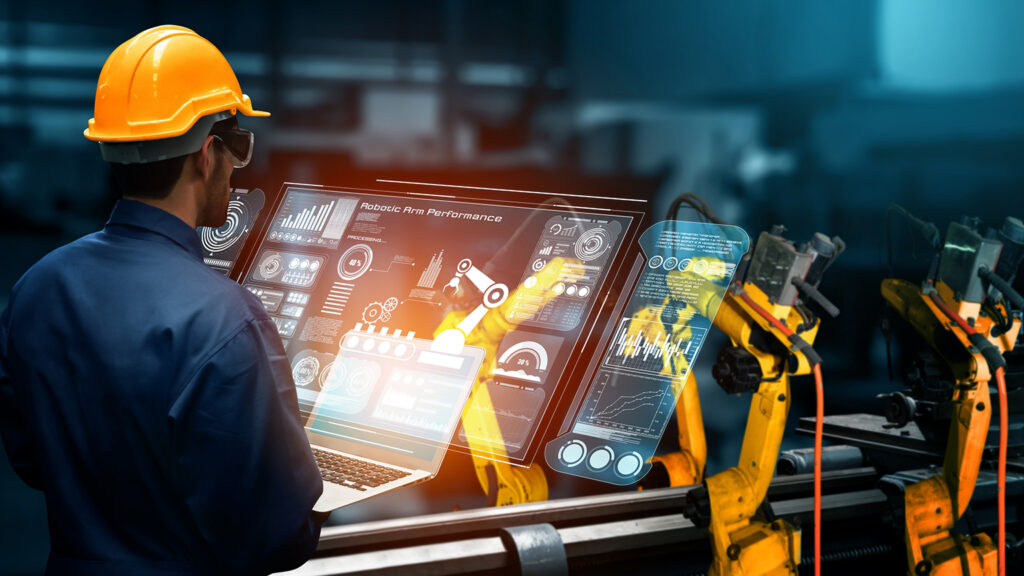
- December 4, 2022
- Alaa Mostafa
- 0
Cloud ERP for manufacturing
Why is cloud ERP for manufacturing at the top of so many companies’ to-do lists right now?
For starters, the enormous change and upheaval that manufacturing and supply chain operations have undergone in the past few years has left even some of the best-run companies feeling overwhelmed. Also, the need to shift to ever-widening partner networks for supplies and materials is leaving businesses exposed and blinkered. Growing customer demands for speed and customization see outdated systems straining at the seams. Global disruptions – while nothing new in this sector – have nonetheless been at epic proportions lately.
Many businesses are pushing their legacy ERP systems to the brink, trying to manage their day-to-day operations including their supply chain, logistics and finance operations. To not only cope – but thrive – under these mercurial conditions, today’s manufacturers are looking for solutions that unify, connect, and coordinate – giving them visibility they need to manage their operations and share data across the business on a single, shared platform.
Definition: Cloud manufacturing
Cloud manufacturing makes operational resources available on demand across the business using Industry 4.0 technologies including AI, cloud connectivity, Industrial IoT, and predictive analytics. Through the use of a centralized smart system such as cloud ERP software, cloud manufacturing operations can be optimized and managed across the entire lifecycle of a product, from concept and R&D to maintenance and even to end-of-life and recycling.

What can AI-powered manufacturing ERP software bring to the table?
In the modern manufacturing sector, business leaders are faced with myriad challenges but once they’ve identified their problems, what separates a good business from a great business is how quickly they get on with finding the right solutions – and finding ways to get out in front of their competitors.
To conquer both cultural and process-based challenges, the best companies are focusing on a few core priorities, and modern manufacturing ERP software with AI can help in these 4 ways:
Collaboration
It’s no secret that silos and opacity are bad for business. Everyone agrees yet it remains a pervasive problem – especially in distributed operations like global supply chains and manufacturing. The world (and your clientele) runs at a faster pace than ever before, demanding more and moving on quickly when they can’t get it. To achieve true agility and resilience, manufacturers need to collaborate with external suppliers, partners, and business networks – as well as the specialist teams and relevant departments within their own organization. ERP for manufacturing gives teams and partners the unified access and visibility they need to share strategic plans, ideas, data – and to collaborate in real time on any aspect of manufacturing operations.
Coordination
Product lifecycles are getting shorter by the day. There is increasing pressure to customize items and service, and to improve sustainability across the supply chain. Every link in your manufacturing value chain – from raw materials to final packaging – has an impact upon other operational areas. A cloud ERP for manufacturing lets you coordinate partners and departments, with centralized data and intelligence they need to meet changing pressures and demands. For example: When HR knows a big project is coming up, they can be prepared with trained and vetted staff. When sales and marketing hear that a product innovation is in the works, they can get ready early with coordinated campaign and marketing plans.
Compliance
According to a recent study from LexisNexis, corporate compliance-related increased almost 20% from 2019 to 2020. And more than 89% of that global total (of over $213 billion), was borne by North American and European companies. From cybersecurity to trade regulations, to HR, modern businesses face a growing and daunting range of global regulations. Cloud ERP systems not only manage and refresh global compliance regulations in real time – they can also help you configure automated process and procedural updates in response to changing regulations.
Customer integration
Traditionally, business have gathered and analyzed customer feedback in a backward-looking and retrospective fashion. After a few months of observing trends, there would be a decision to update a product or service or to improve the customer experience in some way. But today, customer loyalty is more fickle than ever. Bloomreach research shows that all it takes is one bad experience for almost 80% of customers to move on to another brand. For businesses to thrive, they need to be as responsive as possible to customer needs. Cloud ERP solutions are helping to drive this by supporting faster real-time data analytics and more agile production processes. This enables product customization to individual customers’ specifications, drives new business models, and helps to nurture customer relationships beyond the initial transaction – providing tailored service and support as part of a continuously learning circular economy.
Source: SAP insights


